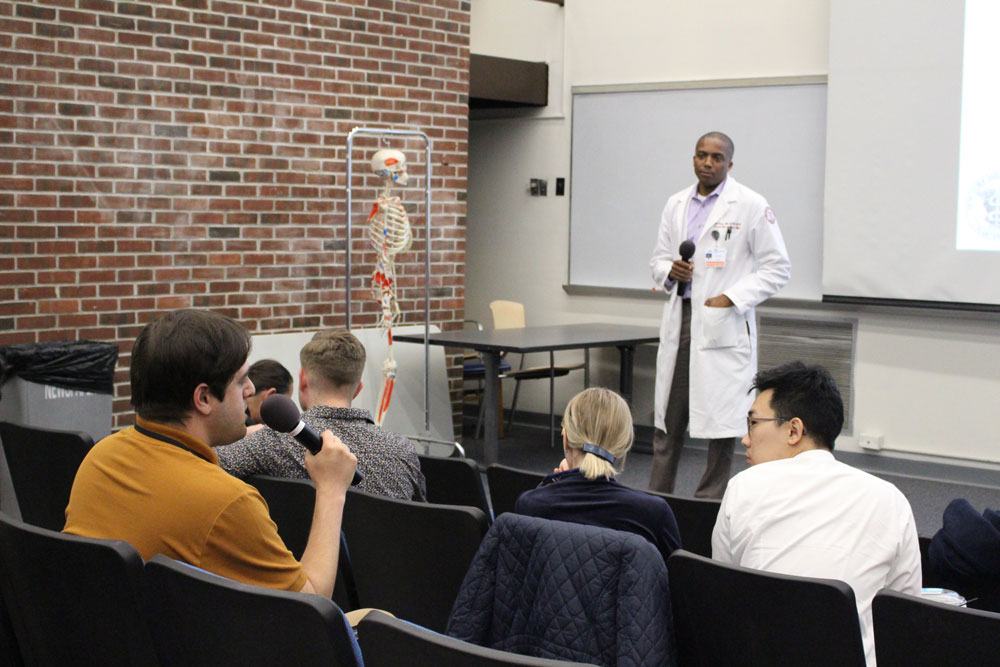NYMC Shines a Spotlight on Autism
Enriching medical students’ understanding of accessibility constraints in health care, the New York Medical College (NYMC) Office of Academic Support hosted Spotlight on Autism on October 24, part of the Accessibility Awareness and Education Lecture Series.

The lecture featured keynote speaker, Mill Etienne, M.D. ’02, M.P.H. FAAN, FAES, top right, School of Medicine associate dean of student affairs and associate professor of neurology, and Paul Morris, bottom left, assistant in the NYMC Office of Human Resources, who is also an avid advocate for Autism awareness.
Nonverbal until he was five, Mr. Morris received a diagnosis and early intervention for Autism Spectrum Disorder at a young age. Today, he works at the Center for Autism and the Developing Brain at New York-Presbyterian Westchester Behavioral Health Center and at Westchester Therapy Solutions, in addition to his role at NYMC. In October, he served as chair of the Autism Science Foundation 5K Walk in White Plains, New York, where he was joined by family, friends and colleagues who walked to raise funds and awareness. Describing his journey to independence and advocacy, he recalls his frustration when everyone was trying to teach him how to talk, listen and behave. “I didn't know what was barring my mind. Now, standing in front of you, speaking about my life with autism, I am happy that I found my voice.”
Dr. Etienne spoke on the neuroscience of Autistic Spectrum Disorder and the groundbreaking research which may one day lead to a cure. “From birth until (about) two or three years, brain development begins a process called blooming, creating many more synapses than you will ever need, and creating them at a very rapid pace. Then a process called pruning begins, pairing-down the number of synapses so we are left with the important connections which can then be strengthened. But, in people who have Autism Spectrum Disorder, we believe the pruning process is disrupted.” According to Dr. Etienne, researchers in this field are currently working with animal models, using medications that may be able to repair neurological pathways. “The hope is to find medications that can improve this pruning process and eliminate the key abnormalities found in people with Autism Spectrum Disorder.”
Lidia Klepacz, M.D., assistant professor of psychiatry and behavioral sciences, provided her expertise about early diagnosis and early interventions for children with Autistic Spectrum Disorder. “Since there are no medications that can treat or cure autism today, the most successful treatments include early intervention, speech therapy, occupational therapy and social training,” she explained. “I believe that everybody deserves love and happiness and success in life— and I strongly believe that independent of level of impairment or disability, everyone can accomplish this with appropriate, supportive and therapeutic interventions.”

